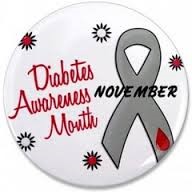According to the National Sleep Foundation, adults should clock in 7 to 9 hours of sleep per night. The average American adult sleeps 6.5 hours per night.
Why is sleep so important?
- Physical rest
- Mental rest
- Emotional rest
- Concentration
- Information retention
Sleep duration, quality and timing of the sleep may affect hormone production, including insulin. Lack of proper sleep can lead to decreased glucose tolerance, making adequate sleep especially important for individuals with diabetes. Research has also found that that both inadequate (less than 5 and 6 hours) and excessive sleep (more than 9 hours) may increase diabetes risk. Therefore, sleep is essential in both the treatment and prevention of diabetes.
If you’re having trouble getting 7 to 9 hours of sleep at night, read through the following factors that may be interfering with your sleep and see if any may relate to you:
- Caffeine
It can take up to 6 to 8 hours for the effects of caffeine to ware off.
- Nicotine
Nicotine is a stimulant that causes lighter sleep patters
- Alcohol
Despite alcohols sedative effects, it can interfere with deep sleep that is essential for a good night’s rest.
- Psychological disorders
Depression may disrupt sleep or cause insomnia.
- Nighttime exercise
While day time exercise may improve sleep, nighttime exercise can do the opposite.
- Large meals at night
Large meals can cause heart burn.
- Chronic pain
Discomfort from fibromyalgia and arthritis can interfere with sleep.
- Medications
Some pain relievers contain caffeine; allergy and steroid medication can interfere with sleep; and beta blockers make it difficult to fall asleep and cause frequent nighttime awakenings.
- Environment
Noise, lighting, and uncomfortable temperatures can disrupt proper sleep.
Sources:
The Link Between Sleep and Weight Gain, Todays Dietitian (2012).


